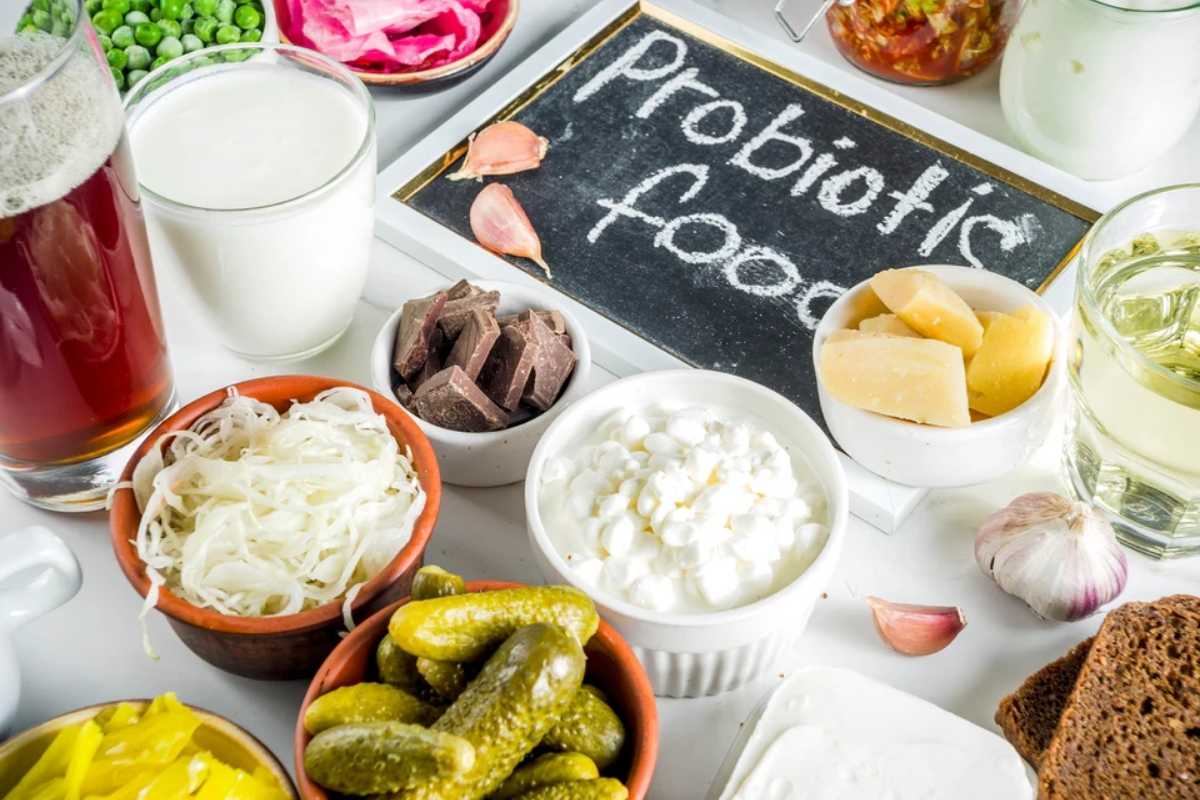Your gut health plays a crucial role in your overall well-being, influencing everything from digestion and immunity to mental health and energy levels. A well-balanced gut can improve nutrient absorption, reduce inflammation, and even enhance mood.
However, poor gut health can lead to bloating, fatigue, digestive issues, and a weakened immune system. The good news? Improving gut health doesn’t require drastic changes—you can start feeling better by making just a few simple adjustments to your daily routine.
In this article, we’ll explore five science-backed ways to improve your gut health naturally.

1. Eat More Fiber-Rich Foods
Dietary fiber is essential for maintaining a healthy gut microbiome. It acts as fuel for beneficial gut bacteria, helping them thrive and keeping digestion smooth.
Best Fiber-Rich Foods for Gut Health:
✅ Fruits: Apples, bananas, berries, pears
✅ Vegetables: Broccoli, carrots, spinach, sweet potatoes
✅ Whole grains: Oats, quinoa, brown rice, whole wheat
✅ Legumes: Lentils, beans, chickpeas
✅ Nuts & Seeds: Chia seeds, flaxseeds, almonds
📌 Scientific Evidence:
A study published in Cell Host & Microbe found that a high-fiber diet increases the diversity of gut bacteria, which is linked to better digestion and a stronger immune system. (1)
Tip: Aim for 25-30 grams of fiber per day and increase intake gradually to avoid bloating.
Read more: 10 Simple Habits for a Healthier and Happier Life
2. Add More Fermented and Probiotic Foods
Probiotics are live beneficial bacteria that support gut balance and digestion. Consuming more probiotic-rich and fermented foods can enhance your gut microbiome and reduce digestive discomfort.
Best Probiotic Foods for Gut Health:
✅ Yogurt (with live cultures)
✅ Kefir (fermented milk drink)
✅ Kimchi (fermented Korean cabbage)
✅ Sauerkraut (fermented cabbage)
✅ Miso & Tempeh (fermented soy-based foods)
✅ Kombucha (fermented tea)
📌 Scientific Evidence:
A study in The American Journal of Clinical Nutrition showed that probiotic foods help restore gut flora, reduce bloating, and improve digestion. (2)
Tip: Look for “live and active cultures” on yogurt labels and experiment with different fermented foods to find what you enjoy.

3. Reduce Processed Foods and Artificial Sweeteners
A diet high in processed foods, sugar, and artificial sweeteners can disrupt gut bacteria and lead to inflammation, bloating, and digestive issues.
Foods to Avoid or Limit for Gut Health:
❌ Processed meats & fast food
❌ Sugary snacks & soda
❌ Refined carbs (white bread, pasta, pastries)
❌ Artificial sweeteners (aspartame, sucralose, saccharin)
📌 Scientific Evidence:
A study in Nature found that artificial sweeteners can negatively alter gut bacteria, leading to increased risk of metabolic disorders and digestive issues. (3)
Tip: Swap processed foods for whole, natural ingredients, and choose honey or maple syrup instead of artificial sweeteners.
4. Stay Hydrated and Drink More Water
Hydration plays a crucial role in digestion by helping food move through the intestines smoothly and supporting beneficial gut bacteria.
How Water Helps Gut Health:
💧 Prevents constipation
💧 Aids in breaking down food for better nutrient absorption
💧 Supports mucus lining in the gut
💧 Flushes out toxins
📌 Scientific Evidence:
A study in The Journal of Nutrition found that individuals who drank more water had a healthier gut microbiome and better digestion. (4)
Tip: Aim for at least 8 glasses of water per day and start your morning with a glass of warm lemon water to support digestion.

5. Manage Stress and Get Enough Sleep
Did you know that stress and lack of sleep can damage your gut health? The gut and brain are closely connected through the gut-brain axis, meaning that mental health directly affects digestion and gut bacteria balance.
Ways to Reduce Stress for Gut Health:
🧘 Practice mindfulness & meditation
🏃 Exercise regularly
📖 Take breaks & engage in relaxing activities
🛏 Get 7-9 hours of quality sleep per night
📌 Scientific Evidence:
A study published in The Journal of Physiology found that chronic stress can disrupt gut bacteria balance, increase inflammation, and slow digestion. (5)
Tip: Create a relaxing bedtime routine, avoid screens before bed, and try deep breathing exercises to improve both gut health and mental well-being.
Bonus Tips for Gut Health
🎯 Eat slowly and chew thoroughly – Helps digestion and prevents bloating.
🎯 Exercise regularly – Boosts gut bacteria diversity and promotes better digestion.
🎯 Avoid excessive antibiotics – Only take antibiotics when necessary, as they can kill beneficial gut bacteria.
🎯 Incorporate prebiotic foods – Foods like garlic, onions, bananas, and asparagus feed healthy gut bacteria.
Final Thoughts: Take Small Steps for a Healthier Gut
Improving gut health doesn’t require a complete lifestyle overhaul. By making small, sustainable changes—like eating more fiber, adding probiotic foods, drinking water, and reducing stress—you can strengthen your digestive system, boost your immune system, and feel better overall.
Which of these changes will you start with today? Let us know in the comments below! 😊


